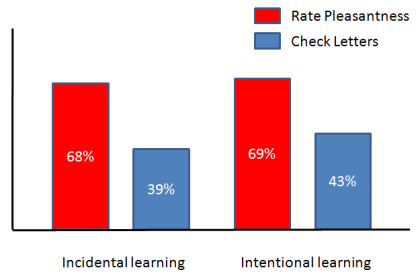Make study more effective, the easy way
Decades old research into how memory works should have revolutionised University teaching. It didn’t.
If you’re a student, what I’m about to tell you will let you change how you study so that it is more effective, more enjoyable and easier. If you work at a University, you – like me – should hang your head in shame that we’ve known this for decades but still teach the way we do.
There’s a dangerous idea in education that students are receptacles, and teachers are responsible for providing content that fills them up. This model encourages us to test students by the amount of content they can regurgitate, to focus overly on statements rather than skills in assessment and on syllabuses rather than values in teaching. It also encourages us to believe that we should try and learn things by trying to remember them. Sounds plausible, perhaps, but there’s a problem. Research into the psychology of memory shows that intention to remember is a very minor factor in whether you remember something or not. Far more important than whether you want to remember something is how you think about the material when you encounter it.
A classic experiment by Hyde and Jenkins (1973) illustrates this. These researchers gave participants lists of words, which they later tested recall of, as their memory items. To affect their thinking about the words, half the participants were told to rate the pleasantness of each word, and half were told to check if the word contained the letters ‘e’ or ‘g’. This manipulation was designed to affect ‘depth of processing’. The participants in the rating-pleasantness condition had to think about what the word meant, and relate it to themselves (how they felt about it) – “deep processing”. Participants in the letter-checking condition just had to look at the shape of the letters, they didn’t even have to read the word if they didn’t want to – “shallow processing”. The second, independent, manipulation concerned whether participants knew that they would be tested later on the words. Half of each group were told this – the “intentional learning” condition – and half weren’t told, the test would come as a surprise – the “incidental learning” condition.
I’ve made a graph so you can see the effects of these two manipulations
As you can see, there isn’t much difference between the intentional and incidental learning conditions. Whether or not a participant wanted to remember the words didn’t affect how many words they remembered. Instead, the major effect is due to how participants thought about the words when they encountered them. Participants who thought deeply about the words remembered nearly twice as many as participants who only thought shallowly about the words, regardless of whether they intended to remember them or not.
The implications for how we teach and learn should be clear. Wanting to remember, or telling people to remember, isn’t effective. If you want to remember something you need to think about it deeply. This means you need to think about what you are trying to remember means, both in relationship to other material you are trying to learn, and to yourself. Other research in memory has shown the importance of schema – memory patterns and structures – for recall. As teachers, we try and organise our course material for the convenience of students, to best help them understand it. Unfortunately, this organisation – the schema – for the material then becomes part of the assessment and something which students try to remember. What this research suggests is that, merely in terms of remembering, it would be more effective for students to come up with their own organisation for course material.
If you are a student the implication of this study and those like it is clear : don’t stress yourself with revision where you read and re-read textbooks and course notes. You’ll remember better (and understand much better) if you try and re-organise the material you’ve been given in your own way.
If you are a teacher, like me, then this research raises some disturbing questions. At a University the main form of teaching we do is the lecture, which puts the student in a passive role and, essentially, asks them to “remember this” – an instruction we know to be ineffective. Instead, we should be thinking hard, always, about how to create teaching experiences in which students are more active, and about creating courses in which students are permitted and encouraged to come up with their own organisation of material, rather than just forced to regurgitate ours.
Reference: Hyde, T. S., & Jenkins, J. J. (1973). Recall for words as a function of semantic, graphic, and syntactic orienting tasks. Journal of Verbal Learning and Verbal Behavior, 12(5), 471–480.
